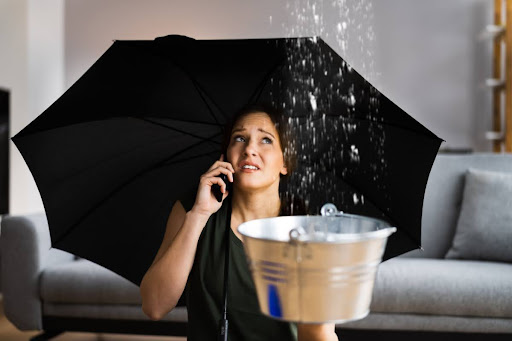The word “emergency” can bring a rush of emotions — stress, frustration, even panic. Plumbing disasters always seem to happen at the worst times, whether it’s an overflowing toilet before guests arrive or a burst pipe in the middle of the night. These issues can cause major damage quickly, leading to costly repairs and serious headaches.
Fortunately, many common plumbing emergencies can be avoided with regular maintenance and a few preventative measures. Below are some of the biggest plumbing problems homeowners face, along with tips for preventing them.
1. Burst Pipes
Few things cause chaos in a home faster than burst pipes. A broken pipe can send gallons of water pouring into your home in minutes, ruining floors, walls, and furniture. It’s not just a plumbing problem — it’s a full-blown disaster that can cost thousands in repairs.
A pipe is most likely to burst when:
- Temperatures drop too low. A frozen pipe expands and can crack, leading to leaks or full-on breaks.
- Pipes get too old. Over time, corrosion can weaken pipes, especially copper pipes.
- Your water pressure is too high. Too much pressure in your plumbing system puts stress on pipes, increasing the risk of a burst.
How to Prevent a Burst Pipe
The best way to stop a pipe from bursting is to keep it from getting weak or freezing in the first place. Here’s what you can do:
- Keep your home warm in winter, and let faucets drip when it’s extremely cold.
- Replace old, corroded pipes before they fail.
- Install a pressure regulator to keep water pressure at a safe level.
If a pipe does burst, call an emergency plumber immediately to stop the damage from getting worse.
2. Overflowing Toilets
Nothing ruins your day faster than an overflowing toilet. Not only is it disgusting, but it can also be a serious health hazard if wastewater starts spilling onto your bathroom floor.
Toilets typically overflow because of the following:
- A clogged toilet. Too much toilet paper, wipes, or foreign objects can cause a backup.
- A blocked vent pipe. Vent pipes help air flow through your plumbing system — if they’re clogged, water won’t drain properly.
- A sewer system backup. If your main sewer line is blocked, it can cause wastewater to back up into your home.
How to Prevent a Toilet Overflow
The good news? Most toilet overflows can be avoided. Here’s how:
- Don’t flush anything except toilet paper. “Flushable” wipes? They’re not really flushable.
- At the first sign of slow drainage, grab a plunger. Waiting will only make things worse.
- If you’re dealing with repeated plumbing issues, have a plumber inspect your sewer line for blockages.
If your toilet overflows and won’t stop, turn off the water valve behind the toilet and call a plumber immediately.
3. Water Heater Failures
Your water heater works hard every day, giving you hot showers, clean dishes, and fresh laundry. But when it stops working, you’re left with cold water and a major inconvenience.
A water heater failure can happen due to:
- Sediment buildup. Over time, minerals collect at the bottom of the tank, making it harder for the heater to do its job.
- Leaks. A leaking water heater is a sign that the tank is damaged or rusting from the inside.
- Old age. Most water heaters last eight to 12 years. If yours is older, it might be on its way out.
How to Prevent Water Heater Problems
Nobody likes a surprise cold shower. Keep your hot water heater running smoothly with these tips:
- Flush the tank once a year to remove sediment buildup.
- Check for leaks regularly, especially around the base of the tank.
- Replace the unit if it’s over ten years old and struggling to keep up.
If your water heater stops working completely or starts leaking, call Busy Bee Plumbing, Heating & Air Conditioning to schedule a plumbing service in Nashville, Tennessee, right away.
4. Sewer Backups
A sewer system backup is one of the worst plumbing emergency examples. Bad smells, raw sewage backups, and multiple drain clogs are all signs that something is seriously wrong.
A sewer system backup usually happens because of:
- Tree roots invading your sewer line. Roots grow toward moisture, and a cracked sewer pipe is the perfect water source.
- A clogged main sewer line. Grease, paper towels, and other debris can block the pipe, causing sewage to back up into your home.
- Heavy rain. If your city’s sewer system gets overwhelmed, the excess water can push waste back up your drains.
How to Prevent a Sewer Backup
Preventing a sewer backup is much easier than cleaning one up. Here’s what you can do:
- Never pour grease or oil down your drains — it hardens and causes blockages.
- Have a plumber inspect your main sewer line every few years, especially if you have older pipes.
- Install a backwater valve to keep sewage from flowing the wrong way.
If you notice slow drains, gurgling toilets, or bad smells coming from your drains, call Busy Bee Plumbing, Heating & Air Conditioning. Our emergency plumbers in Nashville, TN, can provide a solution before the problem gets worse.
5. Gas Leaks
A gas leak is one of the most dangerous plumbing emergencies. Natural gas is highly flammable, and even a small leak can be a fire hazard or lead to carbon monoxide poisoning.
Signs of a leaking gas line include:
- A strong sulfur or rotten egg smell
- Hissing noises near gas appliances
- Unexplained high water bills or energy bills
- Dizziness, nausea, or headaches inside the home
How to Prevent Gas Leaks
Regular maintenance and awareness can help keep your home safe:
- Schedule routine gas line inspections by a professional.
- Replace old or damaged gas lines before they fail.
- If a gas leak is suspected, leave the home immediately and call emergency services.
Never try to fix a gas line yourself. Call an emergency plumber who is trained to handle gas-related plumbing problems.
Don’t Let a Plumbing Emergency Ruin Your Day
Plumbing emergencies can escalate quickly, leading to costly repairs and damage. Being aware of the most common plumbing emergencies and how to prevent them is the best way to avoid stressful situations. But when disaster strikes, fast action is key.
Now that you’re familiar with the most common plumbing emergency examples, don’t let a small issue turn into a big disaster. For expert help with common plumbing emergencies, reach out to Busy Bee Plumbing, Heating & Air Conditioning. From burst pipes to clogged drains, we’re here to get things back to normal.
Need a plumbing service in Nashville, TN? We’re ready to help. Call 615.991.2145 today to schedule your appointment!
Our service areas also include:
- Lebanon, TN
- Mt. Juliet, TN
- Hermitage, TN
- Franklin, TN
- Brentwood, TN
- Cookeville, TN
- Murfreesboro, TN
- Hendersonville, TN
- Smyrna, TN
- La Vergne, TN
- Clarkesville, TN
- Thompson Station, TN
- Spring Hill, TN
- Columbia, TN





